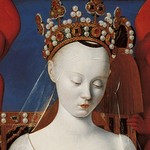- Details

P is for poetry, because there is no song without poetry. For us, literally, prima le parole, poi la musica, a poem that inspires the composer is needed to have a Lied. So, poetry couldn't be left out of Liederabend's alphabet. But how do poets arrive at those poems? Reading, of course (thank you, Captain Obvious!). But do they read to find some poems that can be musicalized? Or maybe do they read for pleasure and then a poem asks them for music?
We know that Wolf was an incurable reader of poetry and marked in his book the poems that would become music. Schumann was also a passionate about reading (he even hesitated between being a writer or a composer) and he was organized enough to write down when and where he had found that poem he had composed.
- Details

When a song has been stuck on my mind for weeks, it's time to share it with you; It's proven that talking about it is a way of getting rid of it (just to make room for a new earworm anyway). In addition, this song isn't really well-known, and maybe some of you will hear it today for the first time. Do you remember that some time ago I talked about Geheimes and its daring elegance? Well, Des Fischers Liebesglück (The fisherman’s luck in love) is somehow similar; a refined, elegant Lied and, at the same time, subtly risky.
- Details
 The year 2018 has just arrived so the first and most important thing is to wish you a wonderful year. The Lied seasons are putting together very interesting (a priori) song recitals, let's see what we say a posteriori! For instance, next Tuesday, the first song recital this year in Barcelona (as far as I know), is given by an experienced singer, Anne Sofie von Otter, with Christian Bezuidenhout at the fortepiano. And, as wrote down in my notebook, this year we celebrate the 100th anniversary of the birth of my beloved Leonard Bernstein.
The year 2018 has just arrived so the first and most important thing is to wish you a wonderful year. The Lied seasons are putting together very interesting (a priori) song recitals, let's see what we say a posteriori! For instance, next Tuesday, the first song recital this year in Barcelona (as far as I know), is given by an experienced singer, Anne Sofie von Otter, with Christian Bezuidenhout at the fortepiano. And, as wrote down in my notebook, this year we celebrate the 100th anniversary of the birth of my beloved Leonard Bernstein.But, as you know, our Christmas Season is not over on Liederabend yet, given that the Three Holy Kings are on their way to our homes, therefore, this is the third and last Christmas post of this season. We're listening to [...]
- Details
 This week I'm (more or less) on holiday, so I'm posting a very brief Christmas post, the second one this season. Just a few words to talk you about a little, tender, song: one of the Trois chants de Noël by the Swiss composer Frank Martin, his first song here on Liederabend.
This week I'm (more or less) on holiday, so I'm posting a very brief Christmas post, the second one this season. Just a few words to talk you about a little, tender, song: one of the Trois chants de Noël by the Swiss composer Frank Martin, his first song here on Liederabend.- Details
 A few people have recently told to me that despite Christmas is upon us, they weren't fully aware of it: neither home decorating nor gifts, nor meals thought... We're living hard times, to say the least, and the spirit of Christmas is downhearted. That is why I thought of one of those balm-songs for the first of the three posts of this season, a wonderful song by Francis Poulenc, Priez pour paix.
A few people have recently told to me that despite Christmas is upon us, they weren't fully aware of it: neither home decorating nor gifts, nor meals thought... We're living hard times, to say the least, and the spirit of Christmas is downhearted. That is why I thought of one of those balm-songs for the first of the three posts of this season, a wonderful song by Francis Poulenc, Priez pour paix.The text was published at Le Figaro on 29 September 1938, when Europe was fearing a new war, only twenty years after the end of that terrible conflict that had bled the continent. Poulenc immediately wrote his mélodie: "I have tried in this mélodie to give an impression of fervour and above all, of humility, which for me its the [...]












